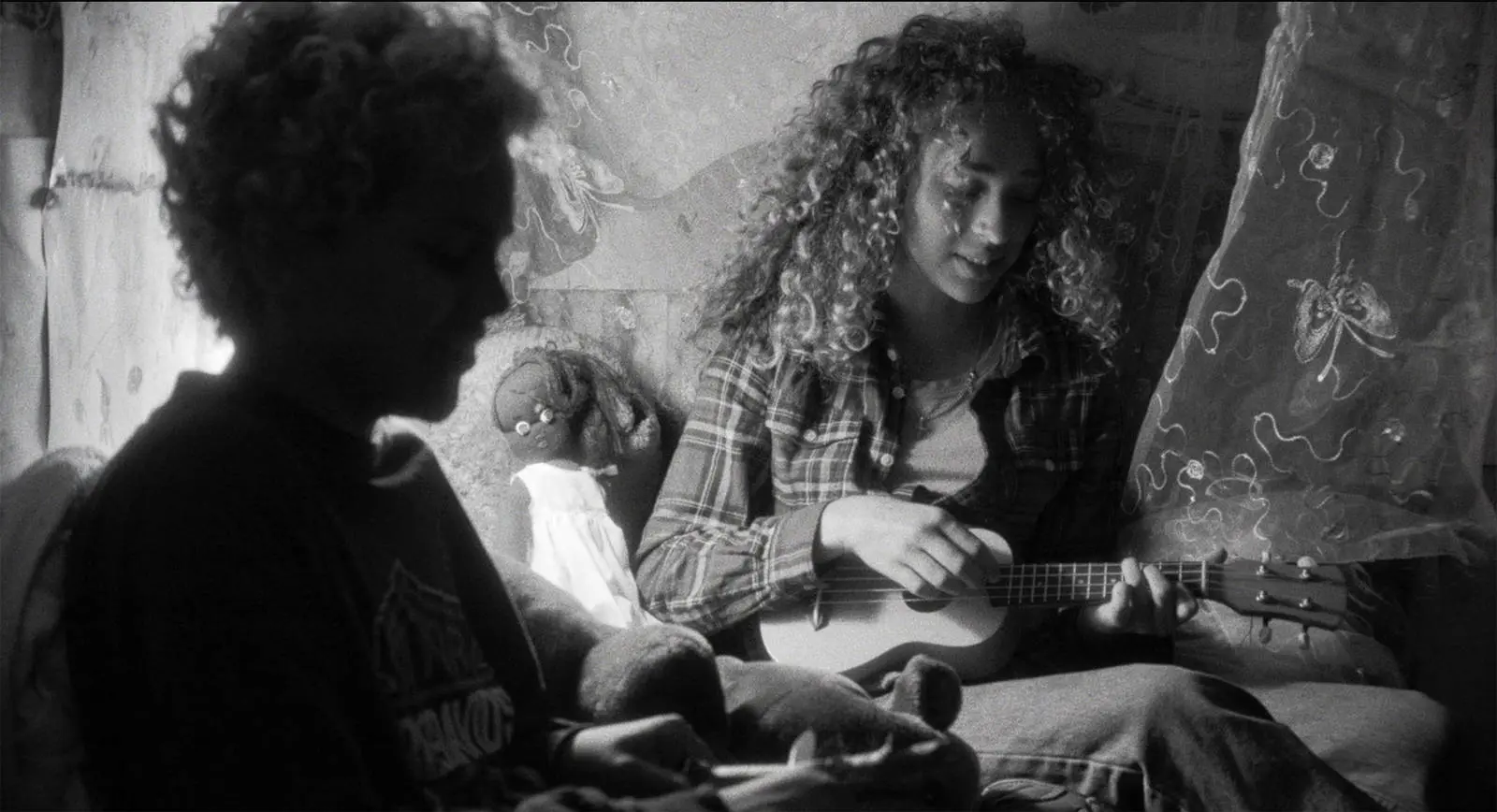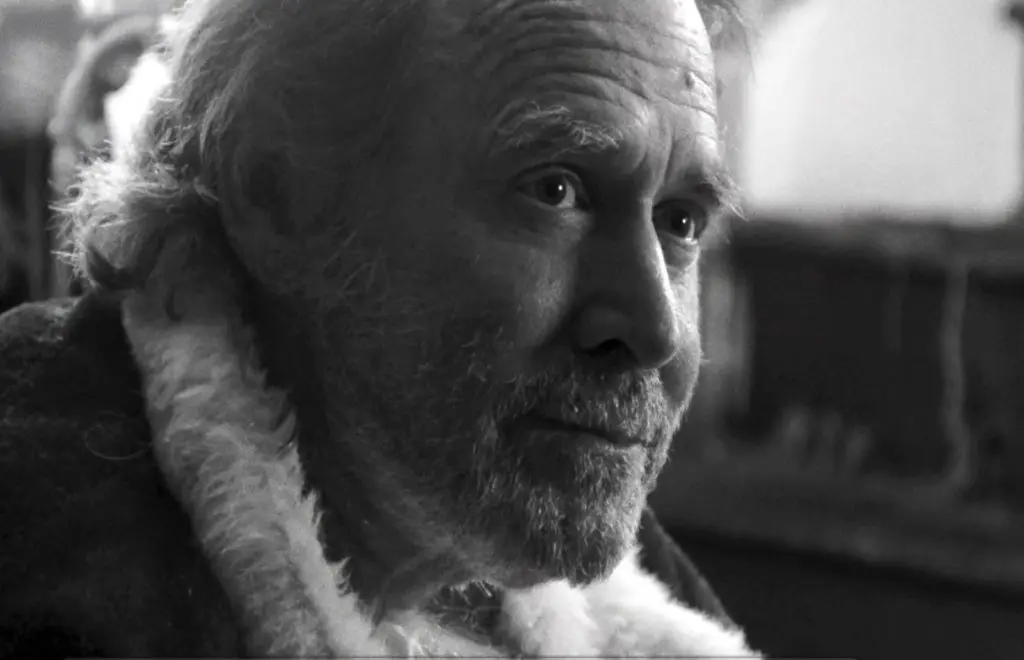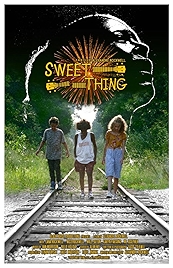Writer/director Alexandre Rockwell’s Sweet Thing is his 11th film in about 40 years and is a small-scale affair, as you might expect from an indie mainstay, crewed largely by students on the NYU film course he teaches and starring his own family and long-time collaborators.
It’s the story of bright teenage girl Billie (Rockwell’s daughter Lana) and her brother Nico (his son Nico) living a ramshackle life with their drunken dad (regular Rockwell presence Will Patton). Somewhere in the wings is their neglectful mother Eve (Karyn Parsons, the kids’ real mother) and her current boyfriend, the bragadocious Beaux (ML Josepher), onto whose mercies Billie and Nico are thrown when dad ends up in a drying-out clinic.
Bad though their stumblebum father was, the kids had worked out a way for the three of them to all rub along and it was in many respects a happy if dysfunctional relationship. No such luck with Eve and Beaux, where things slip into an abusive register fairly quickly. The kids run away, with new friend Malik (Jabari Watkins) and eventually come to experience freedom from care and some of the joy that childhood’s meant to be all about.
There’s a faint resemblance to the 1949 film The History of Mr Polly in its story arc – privation followed by idyll – and perhaps a bit of Truffaut’s The 400 Blows in there too, in its embrace of freedom and its questioning of the price paid for it. Both of those films were also gorgeously shot (Mr Polly by the under-regarded Desmond Dickinson, 400 Blows by the highly rated Henri Decaë) and Sweet Thing is too, by DP Lasse Tolbøll, who is an old student of Rockwell, on 16mm film with all the beauty that can be squeezed out of the reaction of silver nitrate to light – Rockwell is a nut when it comes to the possibilities of old school film stock, and it shows. And when Tolbøll and Rockwell aren’t wowing us with gorgeous monochrome with controlled grain and carefully calibrated grey scales, they are doing something similiar with fantasy moments and flashbacks in a gauzy pseudo-Kodachrome.
The kids can take the camera’s gaze, particularly Lana, who carries much of the film’s narrative weight too – she’s named Billie in honour of Billie Holiday, who she believes watches over her like a guardian angel. The fact that Billie Holiday’s life was blighted by bad men and substance abuse being all part of the baggage.
Rockwell used to be bracketed with the likes of Jim Jarmusch, as part of a US New Wave of the old French New Wave, film-makers with a fondness for black and white, jump cuts and a tendency to land in a scene seemingly midway through it. Jarmusch even appeared in In the Soup, the 1992 film that’s still the one Rockwell’s most known for. Since then Rockwell’s drifted a bit (or maybe Jarmusch has drifted less) but Sweet Thing is something of a return to form, perhaps because it is in many ways an autobiographical story – Rockwell’s dad was indeed a terrible drinker and his mother did indeed have asshole men in her life.
A chaotic first two thirds followed by a woozily dreamy final section makes for a film with a loose reliance on hard narrative waystations. Sweet Thing drifts, and it’s meant to, because the kids’ lives are drifting. But there’s the filmic equivalent of what the cops call a hard stop towards the end, when something sudden, brutal and all-too-real happens. And here the film stumbles a bit emotionally. The artifice – all that grain and careful lighting and moody cinematography – is suddenly in the way. Sweet Thing wants us to be brought up short but it’s hard to feel unmediated emotion when you’re intent on admiring the beautiful technique.
Sweet Thing – Watch it/buy it at Amazon
I am an Amazon affiliate
© Steve Morrissey 2021


